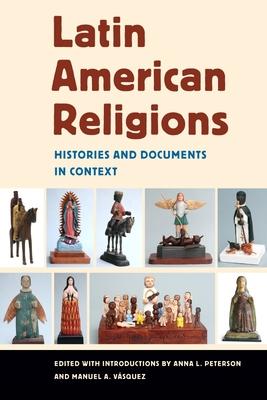Before Columbus, the Americas were populated by many indigenous cultures, with a great diversity of religions. After 1492, European governments and churches dominated religious life. While Roman Catholicism was the official religion, great religious hybridization occurred, mixing European, indigenous, and often African traditions into distinctly New World forms.
Latin American Religions provides an introduction through documents to the historical development and contemporary expressions of religious life in South and Central America, Mexico, and the Spanish-speaking Caribbean. A central feature of this text is its inclusion of both primary and secondary materials, including letters, sermons, journal entries, ritual manuals, and ancient sacred texts. These documents provide readers with direct access to the voices of adherents, enabling them to act as academic investigators, experiencing and interpreting the same texts on which historians draw. The documents are framed by substantive introductions which provide both historical context and theoretical insights for the study of these religions traditions and the ways in which they have developed over time.
From the religious traditions of the Mayas and Aztecs and of the African diaspora, to official and popular Catholicism, to liberation theology, the rise of Pentecostalism, and emerging trends and new religious movements in Latin America, this new work offers a concise overview of this fascinating field.

Latin American Religions: Histories and Documents in Context
Before Columbus, the Americas were populated by many indigenous cultures, with a great diversity of religions. After 1492, European governments and churches dominated religious life. While Roman Catholicism was the official religion, great religious hybridization occurred, mixing European, indigenous, and often African traditions into distinctly New World forms.
Latin American Religions provides an introduction through documents to the historical development and contemporary expressions of religious life in South and Central America, Mexico, and the Spanish-speaking Caribbean. A central feature of this text is its inclusion of both primary and secondary materials, including letters, sermons, journal entries, ritual manuals, and ancient sacred texts. These documents provide readers with direct access to the voices of adherents, enabling them to act as academic investigators, experiencing and interpreting the same texts on which historians draw. The documents are framed by substantive introductions which provide both historical context and theoretical insights for the study of these religions traditions and the ways in which they have developed over time.
From the religious traditions of the Mayas and Aztecs and of the African diaspora, to official and popular Catholicism, to liberation theology, the rise of Pentecostalism, and emerging trends and new religious movements in Latin America, this new work offers a concise overview of this fascinating field.